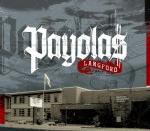We like to think about popular music as an art form that represents the true spirit of the generation that produces it. We think that we choose the music we like, the music that speaks to us, from a wide range of choices. The truth is that popular music is a business where the winner is not necessarily the most talented, but may be the best manipulator or the one with the deepest pockets. Since the 1950s and the beginning of Rock and Roll radio stations and DJs have been willing accomplices to the manipulation of the popular music market. The record industry has depended on various forms of "pay for play" called "payola" to promote their records on the radio and thereby increase sales and gain exposure for their artists. Over the last fifty years, despite government attempts to do away with payola, the practice keeps returning in different forms.
The history of Rock and Roll is intrinsically tied to the history of payola.
"For many America kids, the portable radio signified independence, an escape from the standard entertainment: the huge console radio or television set in the living room, whose programming was controlled by their parents. The music coming out of that miraculously small radio - especially the rock and roll and the jumpy country and the fluid memories of doowop - differed enough from pop crooners that adults listened to teenagers could embrace as their own. And the disc jockey with his energy, his jive lingo, his knowledge of the latest goings-on, was an entertainer in his own right, a star reachable by a phone call, or a visit to a sock hop" (Fong-Torres 4). This was the feeling that Top 40 radio inspired; a feeling of independence, a feeling of having a source of entertainment that...


